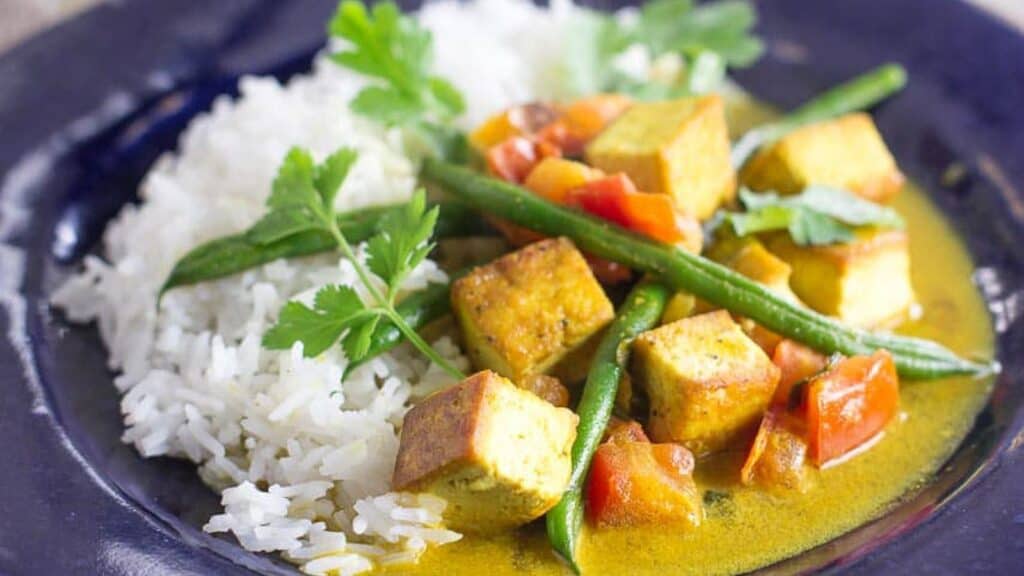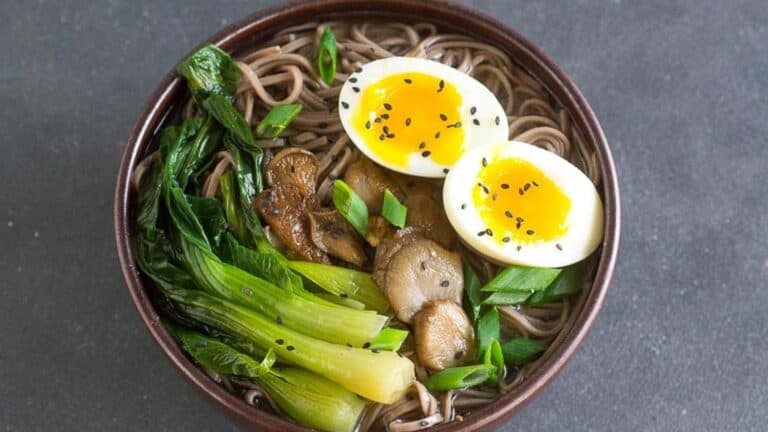36 Chinese Words You Didn’t Know You Were Using Every Day
The English language is a rich tapestry woven from the threads of many different languages, and Chinese is one of the significant contributors. From culinary terms to expressions and everyday objects, Chinese words have seamlessly integrated into everyday English. This article explores the fascinating journey of these words, their origins, and their meanings in both languages.
Tea

Tea comes from the Chinese word t’e (茶), which was introduced to Europe by Dutch traders who bought tea leaves from southern China. The word “tea” in English is derived from the Dutch word “thee,” which in turn comes from the Chinese.
Ketchup

Ketchup is believed to originate from the Chinese word kê-tsiap (茄汁), which referred to a fermented fish sauce. The term evolved over time to describe the tomato-based condiment we know today.
Gung Ho

Gung Ho comes from the Chinese phrase gōng hé (工合), meaning “work together.” It was popularized by a U.S. Marine officer during World War II and now means enthusiastic or eager in English.
Kowtow

Kowtow is derived from the Chinese word kòu tóu (叩头), meaning “knock head.” It refers to the act of kneeling and touching one’s forehead to the ground as a sign of deep respect. In English, it means to act in a subservient manner.
Typhoon

Typhoon comes from the Chinese word tái fēng (台风), meaning “great wind.” This term describes a powerful tropical storm in the Pacific Ocean.
Tofu

Tofu is derived from the Chinese word dòu fu (豆腐), meaning “bean curd.” It is a staple in Chinese cuisine and has become popular worldwide.
Bok Choy

Bok Choy comes from the Cantonese baak choi (白菜), meaning “white vegetable.” It refers to a type of Chinese cabbage commonly used in Asian cooking. Try our soba recipe above.
Dim Sum

Dim Sum is derived from the Cantonese dím sām (点心), meaning “touch the heart.” It refers to a variety of small dishes served in Chinese cuisine, often enjoyed during brunch.
Chow Mein

Chow Mein comes from the Cantonese chāu-mihn (炒面), meaning “stir-fried noodles”. It is a popular Chinese dish consisting of stir-fried noodles with vegetables and meat.
Ginseng

Ginseng is derived from the Chinese word rén shēn (人参), meaning “man root.” This herb is valued for its medicinal properties and is commonly used in traditional Chinese medicine.
Lychee

Lychee comes from the Chinese word lì zhī (荔枝), referring to the tropical fruit known for its sweet and fragrant flavor.
Wonton

Wonton is derived from the Cantonese wàhn tān (馄饨), meaning “swallowing a cloud.” It refers to a type of dumpling commonly found in Chinese cuisine.
Feng Shui

Feng Shui comes from the Chinese words fēng shuǐ (风水), meaning “wind and water.” It is an ancient Chinese practice of arranging the environment to harmonize with natural energy flows.
Kung Fu

Kung Fu is derived from the Chinese words gōng fu (功夫), meaning “skill” or “effort.” In English, it refers to Chinese martial arts.
Tai Chi

Tai Chi comes from the Chinese words tài jí quán (太极拳), meaning “supreme ultimate fist.” It is a form of martial arts known for its slow, flowing movements.
Mahjong

Mahjong is derived from the Chinese word má jiàng (麻将), referring to the popular tile-based game that originated in China.
Rickshaw

Rickshaw comes from the Chinese word rén lì chē (人力车), meaning “human-powered vehicle.” It refers to a small cart pulled by a person, commonly used for transportation in Asia.
Shar Pei

Share Pei is derived from the Cantonese sā pèih (沙皮), meaning “sand skin.” It refers to a breed of dog known for its wrinkled skin.
Shih Tzu

Shih Tzu comes from the Chinese words shī zi (狮子), meaning “lion.” It refers to a breed of dog known as the “lion dog” due to its appearance.
Yin & Yang

Yin and Yang comes from the Chinese words yīn yáng (阴阳), representing the concept of dualism in ancient Chinese philosophy. It describes how opposite forces are interconnected and interdependent in the natural world.
Chopsticks

Chopsticks is derived from the Chinese word kuài zi (筷子), referring to the traditional eating utensils used in Chinese cuisine.
Chop Suey

Chop Suey comes from the Cantonese jap sui (杂碎), meaning “mixed bits.” It refers to a Chinese-American dishmade of meat, eggs, and vegetables stir-fried together.
Cumshaw

Cumshaw comes from the Amoy dialect word kām-siā (感谢), meaning “grateful thanks.” It refers to a gratuity or tip.
Tycoon

Tycoon is derived from the Japanese word taikun (大君), which itself comes from the Chinese dà jūn, meaning “great prince.” In English, it refers to a wealthy and powerful businessperson.
Kaolin

Kaolin comes from the Chinese word gāo líng (高岭), meaning “high ridge.” It refers to a type of fine, white clay used in ceramics and medicine.
Mandarin

Mandarin is derived from the Portuguese word mandarim, which comes from the Chinese mǎn dà rén (满大人), meaning “minister.” It refers to the official language of China and a high-ranking official in the Chinese empire.
Cheongsam

Cheongsam comes from the Cantonese chèuhng sàam (长衫), meaning “long dress”. It refers to a traditional Chinese dress for women.
Qipao

Qipao is derived from the Chinese word qí páo (旗袍), referring to a traditional Chinese dress for women, similar to the cheongsam.
Wushu

Wushu comes from the Chinese words wǔ shù (武术), meaning “martial arts.” It refers to traditional Chinese martial arts.
Yamen

Yamen is derived from the Chinese word yá mén (衙门), meaning “government office.” It refers to the administrative office or residence of a local bureaucrat in imperial China.
Yen

Yen comes from the Chinese word yǎn (瘾), meaning “craving” or “desire.” In English, it refers to a strong desire or craving for something.
Junk

Junk is derived from the Chinese word chuán (船), meaning “boat.” It refers to a type of ancient Chinese sailing ship.
Loquat

Loquat comes from the Cantonese luhk gwāt (芦橘), meaning “reed orange.” It refers to a small, yellow fruit native to China.
Longan

Longan is derived from the Cantonese lùhng ngáahn (龙眼), meaning “dragon eye.” It refers to a tropical fruit similar to lychee.
Tangram

Tangram comes from the Chinese word táng (唐), referring to the Tang dynasty. It is a dissection puzzle consisting of seven flat pieces that are put together to form shapes.
Tao

Tao is derived from the Chinese word dào (道), meaning “way” or “path.” It refers to the fundamental principle underlying the universe in Taoism.
The Takeaway

The integration of Chinese words into the English language is a testament to the rich cultural exchange between China and the English-speaking world. These words not only enrich our vocabulary but also provide a glimpse into the history, culture, and traditions of China. From culinary delights to everyday objects, the influence of Chinese on English is profound and enduring. Understanding these words and their origins enhances our appreciation of both languages and the cultures they represent.
Yiddish Words You Didn’t Know You Were Using Every Day

English is a vibrant mix of many languages and cultures, and Yiddish—a Germanic language traditionally spoken by Ashkenazi Jews—has left a notable mark on American English. How many of these words have made it into your vocabulary? Do you have a favorite? READ: Yiddish Words You Didn’t Know You Were Using Every Day
29 Arabic Words You Didn’t Know You Were Using Every Day

The English language is a melting pot of influences from various cultures and languages. Among these, Arabic has made a significant contribution, especially through trade, science, and cultural exchanges over centuries. This article explores the fascinating journey of Arabic words into everyday English, their origins, and their meanings in both languages.
Read: 29 Arabic Words You Didn’t Know You Were Using Every Day
Join Us

Join us on this empowering journey as we explore, celebrate, and elevate “her story.” The Queen Zone is not just a platform; it’s a community where women from all walks of life can come together, share their experiences, and inspire one another. Welcome to a space where the female experience takes center stage. Sign up for our newsletter so you don’t miss a thing, Queen!







